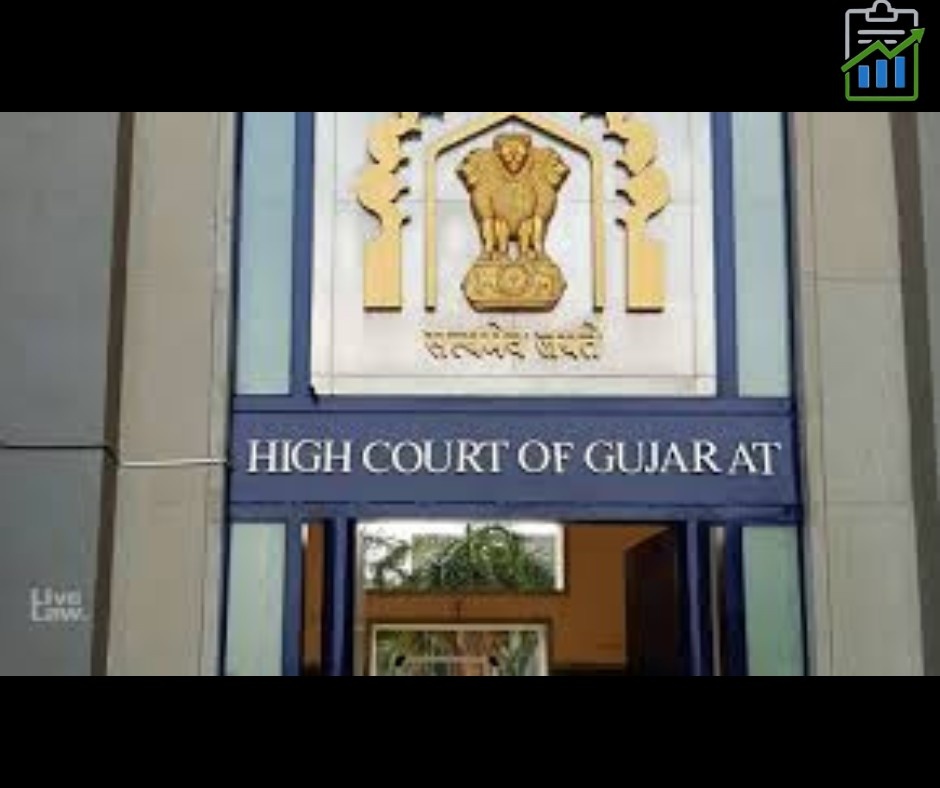
The Gujarat High Court in the case of KUSH PROTEINS PVT. LTD. & ANR. VERSUS UNION OF INDIA & ORS. Vide R/SPECIAL CIVIL APPLICATION NO. 5747 of 2025 dated 18.07.2025, has held that Circulars cannot override statutory provisions or notifications. Restrictions on refund eligibility under an inverted duty structure must apply prospectively, as clearly stated in the notification. Refunds for prior periods filed within the statutory time limit cannot be denied merely because they were filed after the effective date of a restricting notification. The judgment clarifies that eligibility for refund must be tested based on the supply period, and not the date of filing of the application. Since the supplies in question were made prior to 18.07.2022, the restriction under Notification No. 9/2022 does not apply.
Facts of the case: In this case, the petitioners manufacture edible oils taxed at 5% GST (Chapter 15), while inputs attract higher GST, leading to inverted duty structure. The refund claim were filed on 23.01.2023 for periods prior to 18.07.2022. Notification No. 9/2022-CT (Rate) dated 13.07.2022 restricted refunds of accumulated ITC on specified goods under Chapter 15, made effective from 18.07.2022. However, the petitioners filed their refund claims on 23.01.2023, within 2 years from the relevant date under Section 54(1).
The adjudicating authority rejected the refund ex-parte on 31.03.2023. The appellate authority upheld the rejection on 29.02.2024. The Authorities relied on Circular No. 181/13/2022-GST dated 10.11.2022 to deny refund for applications filed after 18.07.2022.
The Petitioner contended that Section 54(1) allows refund claims within 2 years from the relevant date and applications submitted by them were timely. Notification No. 9/2022 applies prospectively from 18.07.2022. Refund claims for periods before 18.07.2022 are not barred. Further, the circular cannot override the statute and notification. Para 2(2) of Circular 181 is ultra vires and discriminatory, creating an artificial classification based on date of filing, violating Article 14 of the Constitution.
The petitioner placed reliance on Gujarat HC decision in Patanjali Foods Ltd. v. Union of India & Ors and Ascent Meditech where similar refund denials were quashed.
Issue: Whether refund of accumulated Input Tax Credit (ITC) under Section 54(3) of the CGST Act can be denied for periods prior to 18.07.2022 solely because the application was filed after 18.07.2022, based on Notification No. 9/2022-CT (Rate) and Circular No. 181/13/2022-GST?
Held that: The Court held that Notification No. 9/2022, dated 13.07.2022, which inserted Entry No. 12B to exclude goods under Chapter 15 (edible oils) from refund eligibility under inverted duty structure, is expressly prospective in nature. It came into effect from 18.07.2022, and cannot be applied to refund claims for tax periods prior to this date.
The Court specifically struck down para 2(2) of Circular No. 181/13/2022-GST, which stated that refund claims filed after 18.07.2022, even if related to prior tax periods, would be governed by the new restriction. The Court held that such a condition violates Section 54(3) of the CGST Act, which permits refund of unutilized ITC arising from an inverted duty structure without restriction unless notified by the Government prospectively. Further, the said circular lacks statutory backing and overrides the parent Act, which is impermissible.
The Court emphasized that the right to refund accrues at the end of the relevant tax period, subject to the two-year limitation under Section 54(1). Merely because the application is filed at a later date, within limitation, does not affect the substantive right if the supply period is not covered by the restrictive notification.
The Court quashed impugned refund rejection order and appellate order. Directed the respondents to process and grant refund in accordance with law, without applying para 2(2) of the Circular.
Conclusion
This landmark Gujarat High Court ruling offers crucial relief to businesses and traders facing unjust ITC refund denials. It reinforces that statutory refund rights cannot be limited by departmental circulars. If you’ve been denied a refund under similar grounds, consult IndTax Filings today for expert legal and tax assistance.
